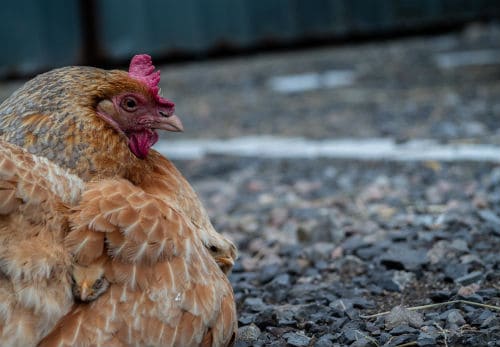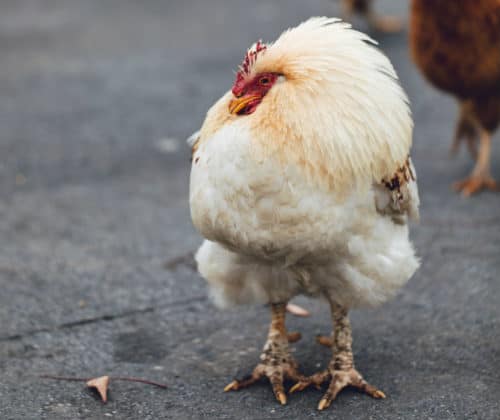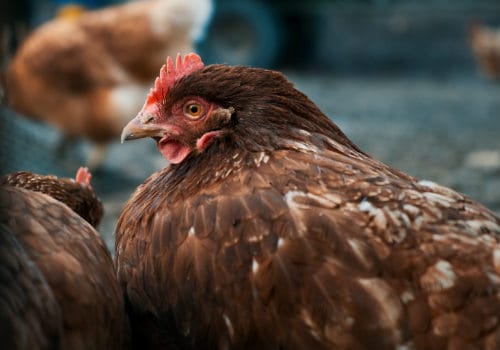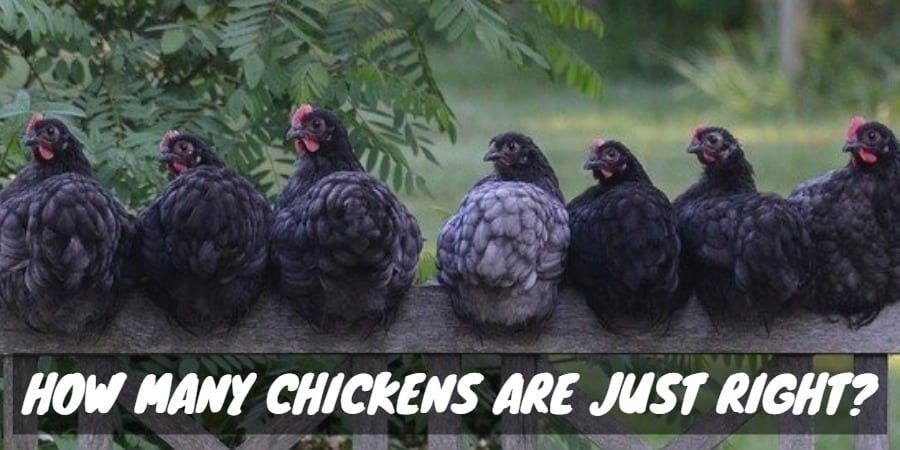Marek’s disease is a highly contagious poultry disease that affects chickens worldwide. Quickly identifying and isolating infected chickens is paramount as the disease spreads rapidly and can devastate your entire flock. To make matters worse, there’s a lot of misinformation available.
Even though it’s a widespread disease, fortunately, most chicken owners will go their entire lives without seeing it. Your local endemic office should alert you when there is an outbreak in your area, so it’s important that you sign up for notifications.
What Exactly Is Marek’s Disease?
This is a viral disease that’s caused by the herpes virus. Some strains of the virus don’t cause the disease itself. They make the chicken a carrier. It’s a rampant disease that your chickens may have already been exposed to, but may have a strand that doesn’t cause symptoms.
There is no reason to panic though because as long as you know how to deal with it, then the disease can be kept under control.

Signs
Sometimes, chickens will not show any symptoms from this disease, or they might be resistant to it. But there are four different ways that Marek’s disease in chickens can present itself – neurological (brain), visceral (internal organs), cutaneous (skin) and ocular (eyes). The type of symptoms will show you the type of Marek’s disease that a chicken has caught. Let’s take a closer look at them.
Symptoms can be downright disturbing and stem from the nervous system so they tend to lead to other nasty problems. You’ll see your birds temporarily paralyzed or worse.
• Birds will look like they are trying to do splits as paralysis takes over their legs and/or wings
• Severely twisting their heads
• Labored, noticeable problems with their breathing
• Darkened or even purple comb
• Grey eye color
• Blindness
• Lesions around feather follicles
• Scabs around feather follicles
• Severe weight loss
• Hens stop laying eggs
Origins of the Disease
This virus is spread by the infected dead skin cells from other birds (not only chickens). It can be carried by hens even if they don’t develop symptoms. It’s important to note that the disease can also be spread through clothing, boots, and even beetles that make their way into the coop.
This dangerous disease can even survive in the soil for years, making it one of the most resilient diseases on the planet.
The only saving grace is that chickens cannot transmit this disease through eggs. It has to be transmitted from chicken to chicken. Therefore, Marek’s disease is more likely to spread when conditions are too tight so make sure your chickens have plenty of space.
The age in which symptoms will start to manifest themselves is between 5 and 25 weeks. That does not mean that older birds can’t suffer from the disease, it just means that younger birds are at a higher risk of contracting it.
Is It Preventable?

There are specific vaccinations that can be given to chickens to reduce the chances of an outbreak, but there is no way to prevent it outright. All the vaccine does is help chickens develop an immunity to the disease. This makes them less likely to experience severe symptoms. Plus it helps to prevent the disease from spreading.
Marek’s disease is a mutating virus, so it is impossible to know which strain will hit at any given time. Think of it as the human flu. You can vaccinate against the strain that seems to be most common, but that does not mean that the birds won’t catch another strain.
There are some ways that you can prevent the disease from catching hold of your flock though. You could avoid adding additional hens to your flock, but that’s not always feasible. Therefore, when you do add to your flock, make sure that these new hens come from a spot that practices strict quarantine.
Housekeeping and ventilation are going to be the best tools at your disposal. Be sure that you disinfect the chicken coop on a regular basis using a cleaning agent like Oxine.
[amazon bestseller=”oxine gallon”]
Marek’s disease is immune to antiseptics like phenol and other disinfectants but Oxine seems to do the trick.
Can Marek’s Disease Be Cured?
Unfortunately, it is not treatable. Once your hen has it, then all you can do is take measures to make sure that it doesn’t spread. If the disease is not too severe, then there is no need to cull (or slaughter) the chickens. Just be sure to keep a close eye on your flock because these infected birds will always be carriers of the disease.
The problem is that when one bird shows signs of having contracted Marek’s disease, then the entire flock probably already has it. Not all of your chickens are going to suffer from the disease, but they will all be carriers. For instance, if you immunize your flock as chicks, then most of them will never show signs of the disease even if one or two might have a severe case.
Infected birds that can fight off the disease force it into a sleep mode. The virus lies dormant in their bodies until it senses a weakness later on. At that time, it will wake up and attack. So if a chicken gets ill later on and their immune system is compromised, then the disease will wake up and attack.
Should We Vaccinate Our Chickens?

This is your a personal choice, and I am not going to tell you that it’s set in stone. Full organic flocks generally receive no medication. That is a good practice as long as you understand that unvaccinated flocks are going to be more susceptible to Marek’s disease. So if the disease does hit, you are going to experience huge losses. Then again, vaccinations do not guarantee immunity either. It’s always going to be a risk. All you can do is reduce that risk, so you need to weigh the pros versus the cons.
On the other hand, if you are showing your birds, then you should get them vaccinated to protect other chickens from catching the disease. Vaccinations are not dangerous to humans, so it’s a personal choice. But when you are exposing them to other chickens, then you have to take those people’s chickens into account.
Plan ahead because it’s costly to vaccinate fully grown chickens. It’s much easier to vaccinate birds when they are young.
Frequently Asked Questions
Is It Safe to Eat Eggs and Meat From Chickens That Have Marek’s Disease?
Since the virus does not travel from hen to egg, they are perfectly safe for consumption. Just be sure to thoroughly clean them.
Chicken meat that is infected can be consumed as long as you thoroughly cook it. However, I would avoid it when at all possible. Most infected birds are euthanized so you will not have to worry about it.
How Can I Learn When the Disease Is Active in My Area?
Some areas will have a local extension office that can tell you about this disease and whether or not it’s active in your area. Your first step is to find them and sign up to receive important notifications. You can also talk to other chicken farmers to determine whether or not their flocks have had been diagnosed with the disease. It’s all about communication here.
Can Humans Catch Marek’s Disease?
Marek’s disease cannot be caught by humans. It’s a disease that only affects birds.
[amazon bestseller=”chicken vitamins”]
Is There a Way to Know for Sure That My Hens Have It?
One way is to look for signs that your birds are suffering, but that is not a foolproof method. The only way to know for sure is to have the chicken tested at a lab.
Conclusion
Marek’s disease is quite widespread, so chances are that you will have to deal with it at some point. Don’t worry, though, it just requires some extra care and a bit of knowledge to keep it from destroying your entire flock. Make sure that you deal with it immediately upon seeing signs because it’s only going to get worse.
The fact that this disease is constantly mutating makes it a persistent challenge. Vaccinated birds are much better equipped at staving off this disease so that should be a factor to keep in mind.




